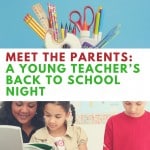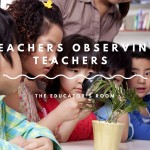June isn’t just the last month of school for many of us. It is also Lesbian Gay Bisexual and Transgender Pride Month. While teachers know teaching about diverse histories, cultures and identities should never be relegated to one month, I still welcome Hispanic Heritage Month, Black History Month, Women’s History Month and Asian and Pacific American Heritage Month (and others) as opportunities to elevate stories that are sometimes otherwise marginalized. Why should LGBT Pride Month be any different?
It shouldn’t.
Still, many teachers and their administrators are even more wary of tackling issues related to gender identity and sexual orientation than they are of tackling race and racism. The primary concern seems to be that students, especially younger ones, might have difficult questions — some of them related to sexual anatomy and intercourse — that educators can’t or shouldn’t answer.
But teaching into LGBT Pride Month should be about love and respect, and not confused with sex education (which many argue should also happen at an early age). Furthermore, teaching is nothing if not about teachable moments. Teachers know we must always be ready, willing and able to address difficult and often unexpected questions.
Still, wading into new or uncomfortable waters can be daunting. So here are a few questions I’ve grappled with as I’m made my first attempts to be a better leader in my classroom conversations around diversity.
How can I talk about this with young kids?
A lot of people, including your friends, colleagues or administrators, might question whether LGBTQ issues are “age-appropriate”. But there are large amounts of research, resources created by LGBTQ advocacy and anti-bias education groups, and children’s book lists that speak to the contrary. According to the National Association for the Education of Young Children (NAEYC), an professional teaching association for preschools:
“Reading children’s books that are inclusive of LGBT families is an essential strategy both for supporting the self-esteem of children from these families and for teaching all children about the diversity of families.”
If it’s good enough for the primary accrediting body of early childhood education, then I would say it’s safe to bring LGBTQ characters into elementary school classrooms too.
In my experience kids notice and know a lot more than we often give them credit for. Recently one of my third graders accurately used the word transition when questions about transgender people arose.
With young kids, I like to start by assessing what they already know and what they want to learn. A K-W-L chart is good place to start, but an informal conversation works as well. Regardless of the structure, this provides a chance for students to share their experience and prior knowledge in a safe space.
From there, it’s great to reinforce or expand what kids know using a read aloud. These can give kids relatable characters and experiences which lessens the “otherness” of the LGBTQ community. Also because you can tailor read alouds to your age group, they can provide you and your students with a good framework or vocabulary to use for future discussion.
What does this have to do with my curriculum?
It might seem like doing a read aloud or other instruction connected to LGBTQ Pride Month is too much of a stretch from your regular teaching, but ultimately, where there’s a will there’s a way. And when you way the benefits of affirming respect for all children and their families against the challenges, there’s no contest.
You can find ways to build these books into existing lessons or units of study, without having to create an entirely new LGBTQ-themed unit. Whether you’re doing character study, looking at problem and solution, or even fairy tales, there are plenty of ways to make include books featuring LGBTQ characters. In my class, I often use read alouds separate from my primary ELA units anyway so I can explore my students’ other interests.
Where do I even start?
As I mentioned, there are numerous resources online. You don’t have to create curriculum or write stories from scratch. Still, for every individual it’s important to self-assess their personal and community readiness for difficult conversations. You don’t want to avoid them, but you should also be very aware of your own biases and blind spots, so you don’t end up perpetuating seriously harmful ideas.
When I realized I hadn’t read any stories featuring LGBTQ characters this year, that was an important wake-up call for me. I started my researching books that were appropriate for my students, and also found many helpful web sites with ideas for framing the conversation with children of all ages.
Some questions to think about as you self-assess your readiness are:
-What are my early memories learning about LGBTQ people in person or through media? What messages did I receive about the LGBTQ community?
-Who are the LGBTQ people in my life? In my school community?
-How can I support students whose family structures or sexual/gender identities I am unfamiliar with?
-Don’t let fear of messing up keep you from having an important conversation. In fact, chances are you will make mistakes, but be ready for feedback and ready to take action on it.
Ultimately, silence is not an option. Here are a few helpful places to start.
Resources:
- Welcoming Schools Get Started
- GLSEN Educator’s Guide
- Groundspark It’s Elementary
Book lists:
These types of conversations might feel scary to you or others, but letting kids spend a year where they don’t have them at all isn’t an alternative. Kids who grow up to be members of the LGBTTQQIAAP community deserve to learn in spaces where they feel safe and seen fully. And kids who grow up to be cisgender heterosexual adults deserve to learn how to love and respect everyone in their community as well.
To quote The Birthday Party Pledge, a literacy project led by educators and authors: “The world is a brighter place when we accept everyone for who they are.”






Leave a comment